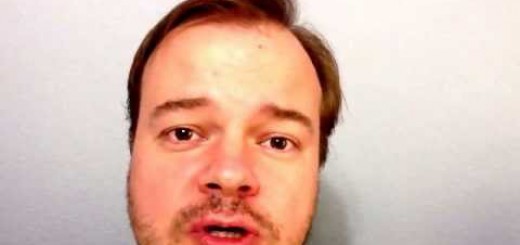 Long ago LinkedIn was a community building system, where Questions and Groups let you establish your expertise on particular topics, learn and network. It was to your advantage to grow your community aggressively. Now LinkedIn is bursting at the seams with people who want to cold call you, add you to lead lists for sale, and add you to their newsletter, without you opting in. Time to retrench – get off most groups, and disconnect from contacts that have never developed. This will allow you to focus on people you actually do know, or really want to know.
Long ago LinkedIn was a community building system, where Questions and Groups let you establish your expertise on particular topics, learn and network. It was to your advantage to grow your community aggressively. Now LinkedIn is bursting at the seams with people who want to cold call you, add you to lead lists for sale, and add you to their newsletter, without you opting in. Time to retrench – get off most groups, and disconnect from contacts that have never developed. This will allow you to focus on people you actually do know, or really want to know.
As mentioned in an earlier post, I’ve been on LinkedIn since 2004, and up until recently had 3469 connections. But all of those connections were made for a LinkedIn of another era. LinkedIn was arguably more networking centric then, a place to meet, get to know, and work with other professionals. Now, it’s not.
LinkedIn is hot as a job board and digital resume platform…social network? Not so much. IMO, anyways.
— Brett Pucino (@BPucino) September 26, 2017
Now LinkedIn is primarily a place to post resumes and jobs, and find jobs or candidates. It’s recruiting. It’s always done that, but in the last several years the focus has been honed in on jobs as it’s profitable, and a clear line to profit. Now I have 1,488 connections. It takes a lot of time to go through and disconnect on LinkedIn. The result of dropping 2,000 connections is I recognize people I’m connected to, know who they are and what they’re doing. We can help each other, and I can trust them. If your goal on LinkedIn is to get as many connections as possible, you’re not using it well. Those vanity metrics of the number of connections still have weight with some people – that is until they find out those people won’t take your calls.
Sadly, most LinkedIn users gauge their success on the system by numbers. Not me. I removed 2k+ connections. Not making a phone book.
— Josh McCormack (@joshmccormack) September 18, 2017
Trust is essential on social network where you’re investing your time in people, and you’re essentially vouching for them by connecting. Unfortunately, as mentioned above, people do not value their reputation on LinkedIn anymore, and many will immediately jump into behavior no one wants.
I trimmed my connections on Twitter and Facebook as well this year. I deleted the Facebook mobile app from my phone, and am not as active on that platform as I was. On Twitter I’m focusing in a lot more on a relatively small number of people. If new people I follow turn out not to engage in discussion through replies, I unfollow them. Additionally, I’m tagging people when I post something on Twitter, and when possible, recycling threads. If I get a discussion going on AI and include 14 people, the next time I have something to share about AI, or a question, or a request for expertise, I’ll add it to that thread. My interactions and discussions on Twitter are better than they have ever been.
I’ve thought about trying to do the same on LinkedIn, in response to posts that show in my feed. But just like when you see Instagram posts crossposted to Twitter, full of hashtags, something just doesn’t feel right. LinkedIn doesn’t feel like a social network.
LinkedIn did feel like a social network for a long time. It’s Questions feature helped people demonstrate their expertise. It was done away with and Quora has stepped in to take over that space. Groups were a huge feature on LinkedIn for a long time. While they still exist, most of them are more like lead traps now, where people try to get your information so they can immediately try some hard and cold selling on you. Facebook Groups have largely replaced LinkedIn Groups now, though maintaining engagement on them is no easy task. For many people Direct Messaging on Twitter has become an alternative to some groups on other platforms.
I don’t have a definitive decision on LinkedIn yet. I honestly feel it’s ripe territory for competition. In terms of usefulness, the best thing about it seems to be finding job listings, seeing who you know who works there, and messaging them. That’s not an insignificant thing, but it’s not all of what I think a platform like LinkedIn could be.


